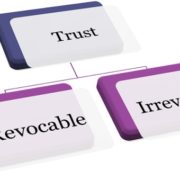Six-Month Creditor Claim Period
Payment of the decedent’s debts is one of the basic responsibilities of an estate fiduciary. Ohio law specifically provides that the fiduciary of an estate shall proceed with diligence to pay the debts of the decedent. The critical questions remain, however, of who to pay and when to pay them. Unless a fiduciary is confident that the estate will have more than enough assets to pay all of the debts of the decedent, it may actually be better not to pay any debts received until the expiration of the creditor’s claim period. Under Ohio law, legitimate creditors have six months to present their claims. When such period expires, only the majority of legitimate debts claims against the estate will remain because if specified claims are not brought timely, they are foreclosed as a matter of law. At this time it can be determined whether or not there are sufficient probate assets with which to pay the debts or if the estate is insolvent. Most people, however, are ignorant of this little wrinkle of Ohio probate law. As such, when a loved one or friend passes, always contact an experienced Ohio probate attorney.
All too often a gung-ho fiduciary starts paying estate debts without a comprehensive accounting of estate assets or complete list of debts and obligations. This results in payment of debts which may have fallen off after the creditor’s claim period or, more seriously, if Ohio statutes are not fully complied during estate administration or assets are prematurely distributed, potential personal liability for a fiduciary. This means that if a surviving spouse, heir, beneficiary, or legitimate creditor should have gotten something from the estate that a fiduciary mistakenly gave away, the fiduciary must personally pay them their share, whatever the amount or value of the asset. This looming threat of personal liability is a significant reason why must appointed fiduciaries seek the counsel of experienced Cleveland estate planning and probate attorneys.
It cannot be understated the significant windfall potential for an estate if the six-month creditor’s claim period is waited out. The difficulty, however, is convincing friends, heirs, and devisees to be patient. Easier said than done. Now, after the debts of the estate are settled and verified and the time has come to pay them, unless the decedent’s will provides otherwise and/or in the absence of sufficient cash or other liquid assets to satisfy the debts, payment is made from the proceeds of the sale of: 1) tangible personal property which has not been specifically devised, then 2) specifically devised tangible personal property, then 3) non-specifically devised real property, and finally 4) specifically devised real property.
Good Ohio legal counselors always advise their client to be wary. A common point, but often overlooked one, of avoiding probate via beneficiary designations or trust usage is privacy. If everything passes via will, anyone anywhere can look up the estate online and see what is going on. A little information in the wrong hands can do a lot of damage. For example, a recent client came into a piece of property of the east side of Cleveland. Naturally, the previous owner failed to property taxes for many years. Lo a behold a nice company called the client and offered to negotiate, settle, then pay off the back taxes, for a nominal fee of course. Client, being uninformed, agreed on the spot and gave out his credit card information. The estate had been closed for quite some time, way past the six month creditor claim period, and now the client has new problems to deal with. All this could have been avoided with a quick 30-second phone call with their Cleveland estate planning attorney, don’t make the same mistake they did.











